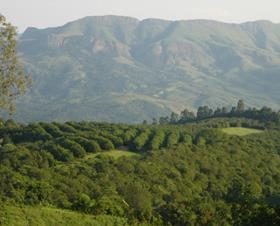
While a top level South African delegation gathers with other Commonwealth leaders in London, hoping to promote South Africa as an investment destination, sectors of the fruit industry are gearing up to contribute to the debate about land in the country.
The Citrus Growers’ Association has invited growers in Limpopo in the North, Mpumalanga in the North-East and the Eastern Cape to attend special consultations during which the citrus sector’s input to a Parliamentary investigation will be developed.
Parliament recently passed a motion to review Section 25 of the country’s Constitution (Deprivation of Property clause) and for the Constitution Review Committee (CRC) of Parliament to consider “Expropriation without Compensation” (EWC) as a mechanism to speed up and effect greater land reform.
During the debate it was stated that expropriation without compensation would be subject to a so-called sustainability test with regard to food security, financial sustainability and economic development. The CRC must submit proposals to Parliament by 30 August, following a thorough consultation process.
“It is critically important that CGA members participate in the provincial consultations. To prepare members for the provincial consultation process it is critically important you are updated with the latest developments in this regard,” says the CGA in its newsletter to growers.
The land issue were projected into the centre of the South African political debate at last year’s ANC conference when Cyril Ramaphosa, once the right hand man of Nelson Mandela, was elected as new leader.
This week Ramaphosa met Queen Elizabeth in London and reassured leaders at Commonwealth meetings that the expropriation of land without compensation would be only one of the methods used to advance transformation in South Africa.
The land issue had been strongly fuelled during the funeral of the late Winnie Mandela, former wife of Nelson Mandela. It is expected that it will remain on the political agenda at least till after next year’s general election as the leading party, the ANC, tried to gain the upper hand against the more radical Economic Freedom Fighters who are in favour of land seizures across the country.
Moderate South Africans hope that in the process the ANC is not pushed into a corner to make concessions which will harm the economy, which is still in junk status.
Ramaphosa himself had to rush home from the London meetings to deal with the crisis in one of the provinces where constituents were demanding the dismissal of the incumbent ANC Premier because of corruption and lack of service delivery.
How he deals with this will very much determine how South Africans view the control of the President over what is a much divided ANC Party.



